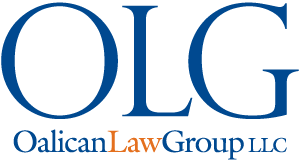In thirty states, a filial responsibility laws hold adult children responsible to pay for the nursing home costs of an indigent parent. Massachusetts is one them and imposes a fine of not more than $200 or imprisonment for not more than one year, or both. This law is not enforced in Massachusetts, but could come into play as states continue to look for new sources of revenue.
Massachusetts has a population of over 6.9 million people, and over 420 nursing homes service more than 48,000 of the state’s residents. The primary sources of payment received by nursing homes are Medicaid (63%), Medicare (14%) and Other (23%). The average cost to a patient paying privately for nursing facility services in the Commonwealth is approximately $300 a day.
Pennsylvania is one of the states where a child could be sued for his or her parents’ unpaid health care bills. In recent years, nursing homes in Pennsylvania have filed numerous lawsuits against the grown children of patients with unpaid bills under filial responsibility laws, requiring them to support their destitute parents. Similar cases have also arisen in both North and South Dakota. Nursing home representatives have long complained that the low Medicaid reimbursements have unfairly squeezed their budgets. Cash-strapped states have even less Medicaid dollars to fund patients’ stays and as such, nursing homes must look elsewhere for funding.
It is evident that nursing home care is becoming increasingly unaffordable for both families and for State funded Medicaid programs, and children need to be aware that they may ultimately foot the bill because of filial responsibility laws. Given that potential, everyone with a parent in an assisted living facility or a nursing home should understand the potential risks to their livelihood should Massachusetts reengage its filial support laws.
Children of elderly parents often seek our advice to protect their parents’ assets. Ironically, the asset protection strategies we implement for the parents are often applicable to the children as well. This “multi-generational” approach differs from traditional estate planning and is a good example of the benefits one derives from an attorney who specializes in elder law.
Regards,
Eric R. Oalican, Esq.
Oalican Law Group, LLC
